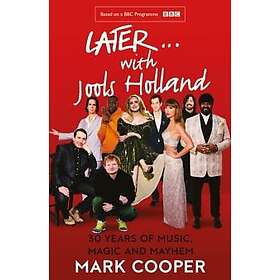The Journey of Jools Holland: Musician and TV Icon

Introduction
Jools Holland stands as a prominent figure in the UK music industry, not only for his contributions as a musician but also for his role as a television presenter. His influence extends through decades, captivating audiences both live and on-screen. This article delves into his storied career, highlighting the significance of his work and its current relevance in the evolving music landscape.
Early Life and Career
Born on January 24, 1962, in London, Jools Holland’s passion for music emerged at a young age. Initially known as the pianist for the rock band Squeeze in the late 1970s, he gained early recognition for his skills. However, it was his transition to television in the 1990s that marked a pivotal shift in his career. The launch of “Later… with Jools Holland” in 1992 provided a platform for showcasing not only established artists but also emerging talent across various genres, cementing his role in introducing new music to the public.
Later Career and Contributions
Over the years, Holland has become synonymous with live music television, creating an engaging atmosphere where performers feel at home. The show continues to run, with episodes featuring diverse acts from rock legends to contemporary stars, a testament to Holland’s ability to adapt to changing musical tastes. His penchant for collaboration has led to intriguing performances, merging styles to create memorable moments. Furthermore, his annual New Year’s Eve Hootenanny has become a staple of British holiday tradition.
Impact and Legacy
Holland’s impact goes beyond mere entertainment; he has played an integral role in promoting British music culture. His show has not only launched the careers of many artists but has also brought attention to various music genres that might otherwise remain undervalued. As of 2023, Holland continues to tour, sharing his love for music with audiences, further enhancing his reputation as a multi-talented artist. His contributions to music were recognised in 2003 when he was awarded an MBE for services to music.
Conclusion
Jools Holland remains a vital part of the UK’s music scene, with his legacy only expected to grow in the years to come. As he continues to bridge generations of music lovers, he embodies the spirit of creativity and collaboration. With plans for further tours and television specials, fans can look forward to new projects while celebrating the rich history he has helped shape. In a rapidly changing music industry, Holland’s dedication to showcasing talent underscores his significance as an artist and a promoter of music culture.









